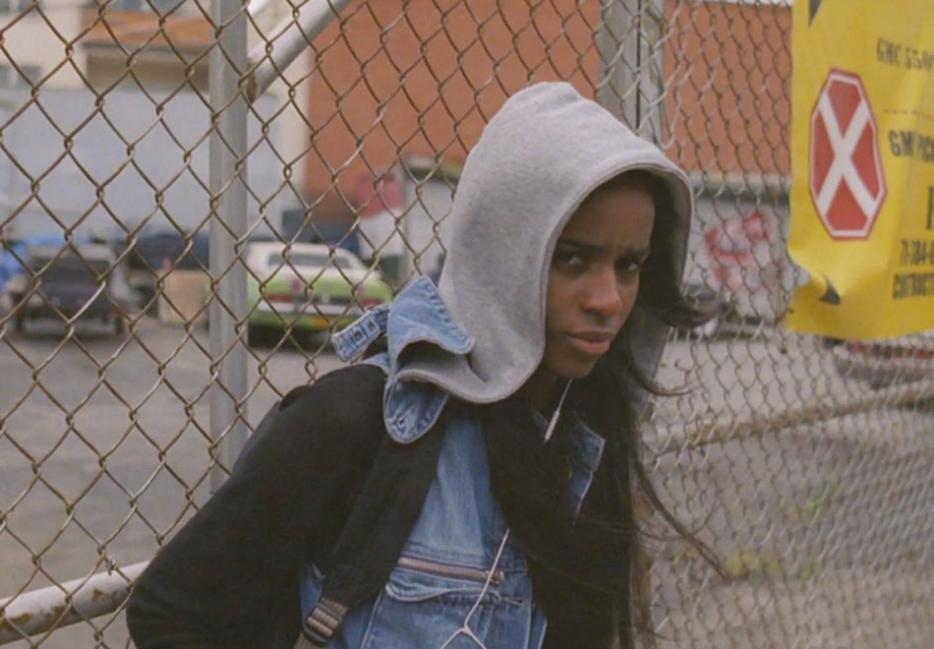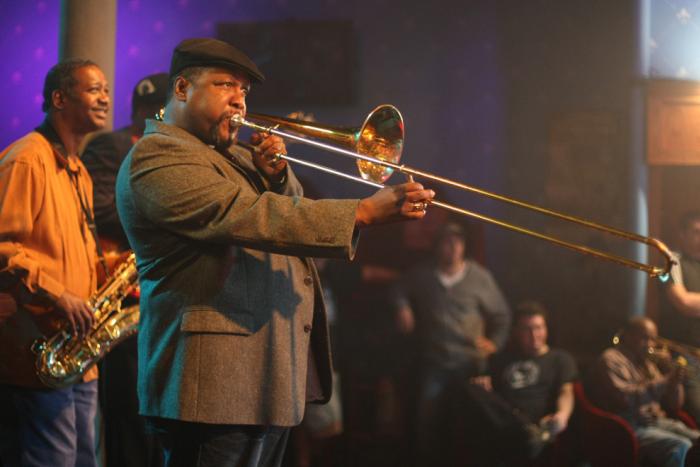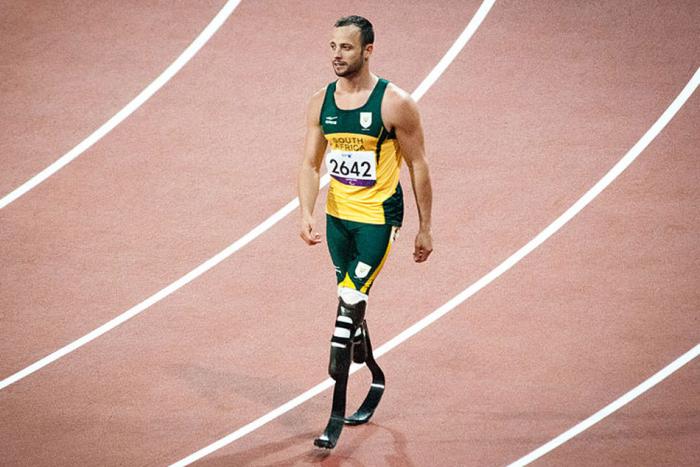Last March, Montreal's Grimes (née Claire Boucher) released the video for "Oblivion," in which she dances her way through the stands at a motocross rally, a football game, and a locker room full of shirtless, moshing bros. The single helped cement Grimes as one of the year's most acclaimed pop acts, but the video's director, Emily Kai Bock, is now receiving her share of accolades, too: The clip was recently named one of 10 finalists for the inaugural Prism Prize, awarded to Canada's best music video (based on artistic merit) and voted on by a panel of journalists, bloggers, critics and broadcasters.
Bock’s work has a dreamy, filmic quality, and the individuals in her sometimes surreal music videos—the troubled figure skater in Grizzly Bear’s “Yet Again” or Doldrums’ Airick Woodhead pushing a shopping cart through the Mojave Desert in “She Is The Wave”—are full-fledged characters. She had studied fine art at Vancouver’s Emily Carr University, but, after moving to Montreal, fell in with the city’s independent art and music scene and started documenting bands.
Her latest work, the short documentary Spit Gold Under An Empire (which premiered at this year’s Sundance Film Festival), looks at New York City’s underground hip-hop scene through the eyes of rappers Angel Haze, Mykki Blanco, The Underachievers, and CJ Fly and Kirk Knight of the Pro Era crew. When I call the director, she’s just wrapped up shooting a video for Brooklyn band HAERTS in Nashville, and is preparing to head back to Montreal. “I guess I haven’t been home since January 22 now,” says Bock. “My poor roommate has been like, When are you coming home?”
What were the advantages (and disadvantages) of being an outsider while shooting the documentary?
I was really curious about the subject, so I think that helped the process. I’ve been to New York a lot, and I love that city. It’s such a rich, vibrant place—incredibly photogenic. I always believed that you could walk around New York blindfolded with a camera and they would all be interesting photos. I was already attracted to filming there, then met these incredibly articulate young people that were so creative that had so much love for the tradition of this music.
I was already into hip-hop and in terms of what’s going on a global level, hip-hop artists are the rock stars of today—it’s the most innovative music that’s coming out now. Before and during the filming, I was staying in Bushwick, so I was walking around a lot and taking in that environment, there was hip-hop coming out of car stereos, apartment radios, and people walking around rapping with headphones on the subway... those are all pieces that I tried to pick up and incorporate into the documentary. I think if I had lived there I might not have noticed it as much.
What was your Sundance Festival experience like?
That was cool. I haven’t really had a chance to take in how dramatically my life has changed in the last little while, but it felt pretty surreal to be at Sundance. I was just coming off a music video shoot, got on a plane, and went to Utah. It was really fun to hang out with other filmmakers and Park City is at the base of a mountain, there’s a chairlift that goes from the downtown main drag to the top of the mountain, so we went snowboarding during the day and saw our films during the night. That’s a really prestigious festival and I felt really honoured to be there.
Many of your music videos feel like short films. How do you feel about music videos being recognized at film festivals like Sundance, Worldwide Short Film Festival, and others?
I was watching the early work of Jonathan Glazer and Michel Gondry—there was another interview I was doing where they were asking what my favourite music videos from my childhood were—and I was so impressed. I remember thinking when I was younger, "Oh Radiohead or Foo Fighters, they’re such cool bands, they have the best videos," not realizing the brilliant directors they were working with. I know budgets used to be a lot bigger in the '90s for music videos; that was when MuchMusic and MTV were more geared towards airing music videos.
Like Glazer’s work for Radiohead on “Karma Police” or Spike Jonze's Daft Punk video [for "Da Funk"] where the guy unexplainably has a dog's head instead of a man's head, walking around in crutches holding a stereo—those definitely belong in the short film festivals. They are extremely well-written scripts and well-crafted—sometimes they involve dialogue and sound design. The examples I gave of Glazer, Gondry, Jonze, were the type of directors who went off to make narrative films and got their start with music videos. I'd imagine they used music videos as a way of trying to find their voice, which is why I think music videos are such a great way to start out for a filmmaker. I can tell my interests have fallen into longer narrative films also—I’m working on a short film right now.
I think the format has made a comeback now because of how we listen to music now—through YouTube and the Internet, staring at a screen—and a lot of bands want a video to accompany their songs. I didn’t know that was going on when I started making music videos, but I think that’s been happening a lot in the past few years. The amount of prep that go into some of these videos in intensive. People aren’t just banging these things out, they take a lot of hard work and are made on tiny budgets and festivals now are realizing that.
You also directed a video for Coca-Cola last year. How do you balance your artistic sensibilities with the commercial side of things?
I think the tradeoff with commercials is that you get to work on a scale that you would never ever get to work on with a video budget. Which is really good practice if you want to make a feature film one day, because your crew size goes from like four to 40—that alone teaches you. It’s like boot camp. You’re on a large set overseeing all these aspects and it’s kind of like sink or swim.
The money you gain from that is very new to me also. You don’t make any money on a music video, so for me, these commercials allow me to fund so many independent projects. I can be kind of stubborn with my ideas and what I want, so to have all these voices giving all this input and feedback, it really teaches you how to collaborate.
How do you feel about being nominated for the Prism Prize? Have you got a chance to check out some of the other videos?
I’m familiar with quite a few of them, I think that’s awesome there’s an award recognizing music videos within Canada. Hopefully this will encourage more filmmakers and people starting out in film. There’s quite a lot of hard work and artistry that goes into the craft, so it’s important that there’s an award ceremony recognizing it.






